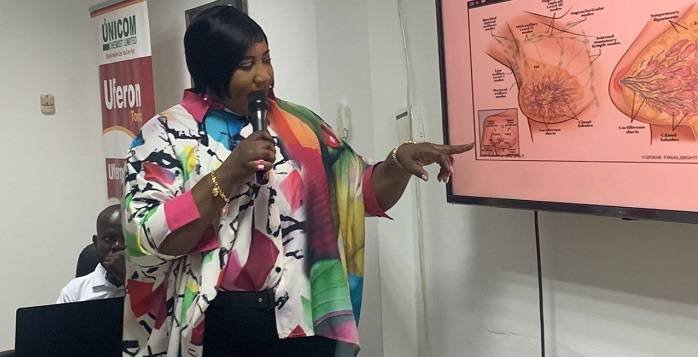News
Vaccinate boys, girls against cervical cancer

Dr Partey-Newman
Dr Victoria Partey-Newman, a Resident Public Health Physician, West African College of Surgeons (WACS), has advocated the vaccination of both boys and girls in the fight against cervical cancer.
In her view, it was the most effective way to prevent the disease from spreading.
Consequently, she expressed the view that it should be engrafted in the educational policy of the country for the Human Papillomavirus (HPV) vaccine to be administered in schools to boys and girls from the age of nine.
According to her, vaccinating both boys and girls could facilitate the eradication of the HPV and also protect boys from infection, reduce transmission, increase herd immunity and effectively reduce HPV associated diseases.
She explained that although men do not suffer from the cancer, they can still contract the HPV after having sex with an infected woman and transmit it.
Dr Partey-Newman said this in an interview with The Spectator on Tuesday in Accra as Ghana joined the world to commemorate the Cervical Cancer awareness month observed in January every year.
The theme for 2024 edition is ‘learn, prevent, screen.’
The month is set aside each year by the World Health Organisation (WHO) to raise awareness of the disease and vaccination against HPV, which is the main cause of cervical cancer.
According to WHO, this year’s Cervical Cancer Awareness Month aims to highlight the importance of increasing access to HPV vaccines, regular screening, and state-of-the-art treatment for cervical cancer in its early stages.
It said, its shared objective was to dramatically reduce the occurrence of cervical cancer by 2030 and to eliminate the disease as a public health problem by 2120.
Dr Partey-Newman, who is also the Chief Executive Officer of Ladybits Health and Wellness Center said “due to our culture about sex, most young girls have not yet been vaccinated right from age nine in schools.”
She urged women to be proactive with their health by visiting the hospital when they experience vaginal bleeding after sex, bleeding after menopause, bleeding between periods, pain during sex, watery vaginal discharges with odour which sometimes contains blood.
She urged women to go for their regular screening each year and avoid smoking, having multiple sexual partners, eat a well-balanced diet and exercise regularly.
Dr Party-Newman mentioned that cervical cancer was primarily caused by persistent infection with high-risk strains of human papillomavirus (HPV).
Currently, she said estimates show that every year 2,797 women are diagnosed with cervical cancer, out of which 1,699 die from the disease.
She said the Catalan Institute of Oncology (ICO) and the International Agency for Research on Cancer (IARC) ranked cervical cancer as the second most frequent cancer among women in Ghana and the second most frequent cancer among women be
By Jemima Esinam Kuatsinu